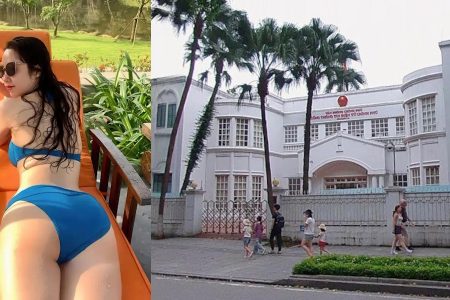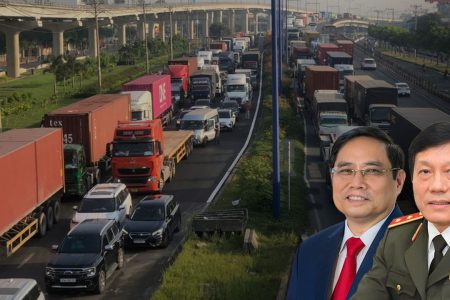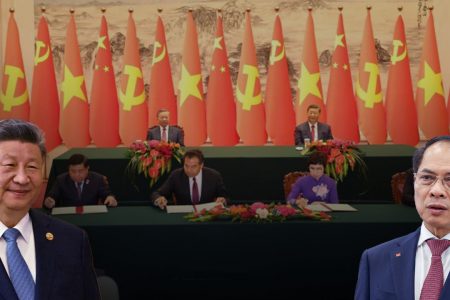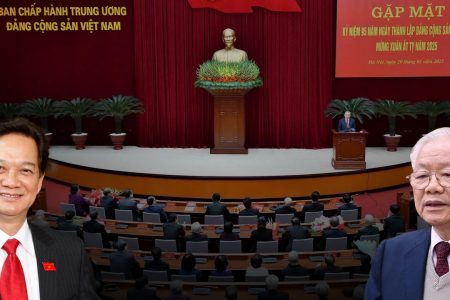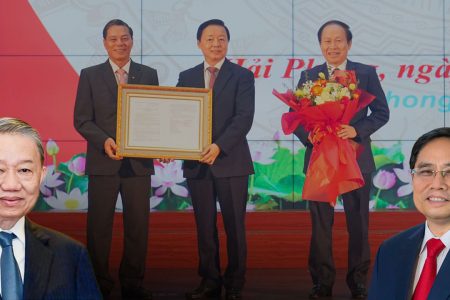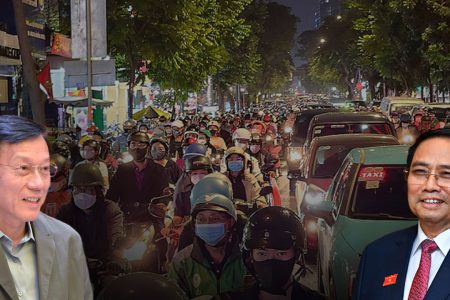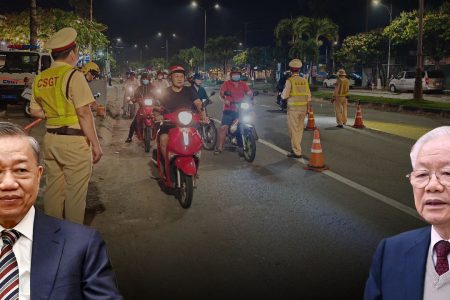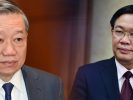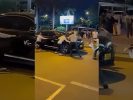
What a paradox in international politics. The two failures that were widely discussed in the media about the 40-41 ASEAN Summit and the 17th East Asia Summit (EAS-17) in Phnom Penh recently proved the maturity of the Cambodian diplomacy and bravery of Prime Minister Hun Sen.
On November 14, 2022, the official newspaper of the CPC ran an “honorable” editorial: “Missed Chance: Cambodia regrets Russian and Ukrainian FMs did not meet in Phnom.” Saying “prestige” is because, that initiative was initiated by Mr. Hun Sen himself, in the role of ASEAN Chairman, who directly proposed to hold talks between Russia and Ukraine to reduce tensions between the two neighboring countries. “Unfortunately, neither Ukraine nor Russia want to meet here… There is no sign of peace talks (between the two sides),” said Mr. Hun Sen.
EAS-17 was attended by the leaders of nine ASEAN member countries (Myanmar was banned from attending). There is also ASEAN Secretary General Lim Jock Hoi; US President Joe Biden; Australian Prime Minister Anthony Albanese; Chinese Premier Li Keqiang; Vice President of India Jagdeep Dhankhar; Prime Minister of Japan Fumio Kishida; New Zealand Prime Minister Jacinda Ardern; South Korean President Yoon Suk Yeol; and Russian Foreign Minister Sergey Lavrov.
A second failure was also publicly mentioned by the CPC press, that is, EAS-17 on November 13 also failed to adopt a Joint Statement, for the obvious reason that Russia and the US did not agree. the language used for the Joint Declaration following heated discussions by 18 countries on the Russia-Ukraine conflict. It is worth noting that at the EAS yesterday, it was also not possible to arrange a joint photo session between the leaders of the region and the world after the Summit, because President Biden was late to the meeting. Prime Minister Hun Sen explained that the US President was late because he was busy at a press conference.
Message: We stand by Ukraine
Both of these failures speak to the inevitable limitations related to ASEAN’s “central” role. And that is unfortunate for the dynamism of Prime Minister Hun Sen in the role of ASEAN Chairman throughout 2022. But that failure did not diminish the values related to Hun Sen’s rare diplomatic bravery. Few could have imagined that Samdech Akka Moha Sena Padei Techo Hun Sen, or colloquially known as Prime Minister Hun Sen, would dare to stand at the forefront of the international forum to defend Ukraine against Russia in the biggest war in Europe since World War II to date.
Truth be told, this year’s international profile of Mr. Hun Sen in 2022 has become the subject of foreign media scrutiny and analysis, especially this year when Cambodia holds the role of ASEAN chair. Around this time, Mr. Hun Sen “had a bigger fish to fry.” And he has deployed all his political and diplomatic shrewdness to leaders from the US, China, and Russia, among others who will shape the regional and global trajectory of the future. the coming years.
Through the war in Ukraine, Mr. Hun Sen quickly grasped the issue and took advantage of the conflict wisely to prove to the world that independence of Cambodia which had been hit by war is not obvious. Most importantly, Phnom Penh’s strong support for respecting national sovereignty, especially that of a smaller country bordering larger states, has its own nascent history. Interestingly, Cambodia positioned itself in the face of Russia’s invasion of Ukraine and its votes at the United Nations were appreciated.
Mr. Hun Sen’s country’s votes in favor of the values of the free world, while not calling for political sanctions, have been widely praised by the global community in light of disapproval of Vietnam and Russian Federation. To express their views on Ukraine, Hun Sen and Ukrainian President Volodymyr Zelensky had a phone call last week. He expressed concern about the recent attack on Kyiv and other cities in Ukraine, and then asserted: “Cambodia resists aggression, threat or use of force against the sovereignty and territory of another independent state, and does not support the annexation of the territories of other states.” The entire conversation was broadcast on the media. The message is clear and simple: “Ukraine, now, we are always with you!”
Know how to be with big countries to protect the right
At the EAS on November 13, Prime Minister Fumio Kishida stated that Japan consistently supports the unity and centrality of ASEAN, according to a statement by the Japanese Foreign Ministry. Mr. Kishida emphasized that Japan attaches great importance to promoting cooperation in accordance with the priority areas of the “ASEAN Outlook for the Indo-Pacific” – an initiative of ASEAN and will continue to make active contributions to the region into these efforts. Prime Minister Kishida stressed that any unilateral attempt to change the status quo by force will never be tolerated anywhere in the world. “Russia’s threats to use nuclear weapons are completely unacceptable, let alone their actual use,” the Japanese foreign ministry said in a statement. He called on the entire international community to send a clear message to prevent the use of nuclear weapons, an act of hostility against humanity after 77 years of non-use of nuclear weapons.”
In the atmosphere of the international community condemning Russia’s aggression against Ukraine at EAS-17, answering the question, whether Ukraine signed the Instrument of Accession to the Treaty of Amity and Cooperation in Southeast Asia (TAC), can affect ASEAN-Russia relations or not, President Hun Sen bluntly replied: “ASEAN is not anyone’s puppet. We remain neutral.” “We are not doing it for the sake of Russia or Ukraine, but for all of our partners,” Hun Sen said. The ASEAN chair added: “Russia has no reason to oppose Ukraine’s accession to the TAC.”
Prime Minister Hun Sen also announced that he would send deminers to train Ukrainians on how to clear a large amount of bombs and mines dropped by Russia in the midst of a fierce war. During a recent phone call with Ukrainian President Volodymyr Zelenskyy, Hun Sen accepted an invitation to visit Kyiv and promised to work with the Japanese government to obtain equipment for Cambodian deminers to use during training.
“Cambodia’s help is part of ‘humanitarian assistance’, not military aid,” Hun Sen explained, adding: “Cambodia does not have weapons and ammunition to supply any country.” These efforts are aimed at saving people’s lives from landmines, he said, noting that Cambodia has suffered a great deal of damage from landmines and unexploded ordnance (UXO) scattered over the past 30 years between the civil war. “We are working with Japan to have demining officers come to clear mines in Ukraine,” he said.
Activities of Prime Minister Pham Minh Chinh
Prime Minister Pham Minh Chinh’s trip to Cambodia took place in six days (November 8-13) with a busy schedule of activities. Within the framework of his official visit to Cambodia and attending the 40th and 41st ASEAN Summits and related summits in Phnom Penh, Vietnamese PM had nearly 60 talks, contacts and meetings as well as bilateral and multilateral and community activities.
Official visit to the Kingdom of Cambodia, Prime Minister Pham Minh Chinh held talks with the Prime Minister of Cambodia; salute to the King of Cambodia Norodom Sihamoni; meeting with President of the Senate of Cambodia Say Chhum; Meeting with President of the National Assembly of Cambodia Heng Samrin. PM Chinh and PM Hun Sen attended the Vietnam-Cambodia Trade and Investment Promotion Forum; visit Cho Ray Hospital-Phnom Penh and some socio-economic facilities is the cooperation between Vietnam and Cambodia. In particular, Chinh took time to talk with representatives of the Vietnamese community in Cambodia.
At the 40-41st ASEAN Summit and nearly 20 related summits, including ASEAN meetings with partners such as China, the United States, Japan, Korea, India, Australia, United Nations…, the Vietnamese government leader had 16 bilateral meetings with leaders of ASEAN countries and partners of ASEAN such as meeting with Prime Ministers: Laos, China, Japan, Singapore, Thailand, Australia, Canada; Presidents: Republic of Korea, United States, Philippines, Indonesia, Sultan of Brunei, Vice President of India, Speaker of the House of Representatives of Malaysia and Secretary-General of the United Nations, President of the World Economic Forum.
The trip was considered a success by the domestic press and reflected the foreign policy of the 13th National Party Congress on “continuing to promote and improve the effectiveness of foreign affairs and international integration” and Directive 25 of the Secretariat on “stepping up and raising the level of multilateral foreign relations to 2030“; cultivate good neighborly relations with Cambodia and be an active and responsible member to the region and the world. However, people in the country did not know that Mr. Chinh had said anything new about Vietnam’s position on Russia’s brutal invasion of Ukraine.
Thoibao.de (Translated)



